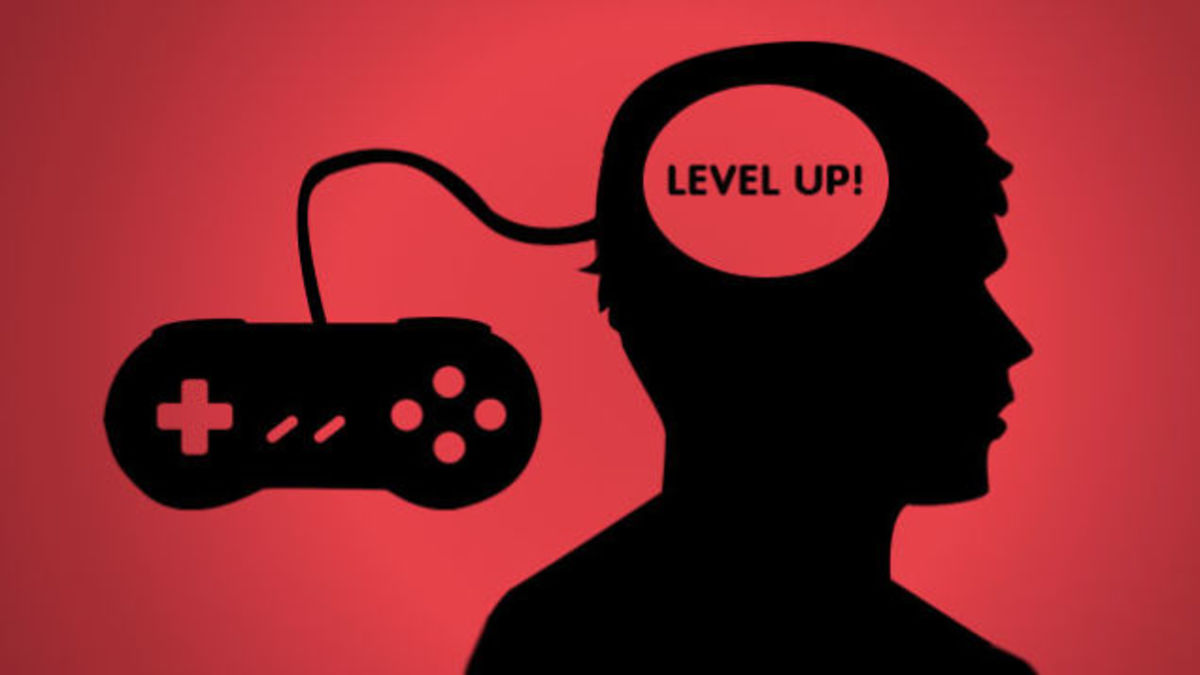[Fill-in-the-blanks] Don't Make Us [Fill-in-the-blanks] - What a Shallow and Inane Thing to Say! [242]
OOPS!

I HAD NO IDEA WHAT HUB TOPIC to put this under, but I just read the statement "Bud Judd Apatow movies don't make people criminally insane", speaking of Elliot Rogers and the massacre near the University of Santa Barbara he is responsible for. The author of the piece, Rich Lowry, was deriding liberals for allegedly implying the "movie" made him do it. If that was what the liberals were actually saying, which I doubt, then his statement is as ill-thought and shallow thinking as is theirs.
"Guns don't kill people", "movies don't make people insane", "video games don't turn our children into criminals" are all true in their strictest meaning, which is why they are so compelling and easy to use for those who do not wish or are not able to engage in intelligent conversation. There is no doubt in my mind that if I spent the time, I could find at least one anecdote where each of these statements are false. Granted, guns, movies, and video games didn't willfully do anything, which I suppose is the reason they are used in the first place, but absent them, and with no other human human's action was the causative factor. It would be the initiating reason because, in the gun's case, it accidentally misfired when dropped for fell off a table during an earthquake; or in the movie and game's case because they set up conditions in an emotionally disturbed person's mind that pushed them past some breaking point at that particular moment whereas another movie or game would not have, at least then.
People from the far-Left and the far-Right, but rarely if ever from the Middle, use these sound bites because they like to make a very complex world simple, which 1) can't be done and 2) deflects the issue from its more important features. Take guns for example. I, a coward who hates physical confrontation, am standing in front of you with a pistol with the intent to kill you. I do so because I am not in physical contact with you and I have the gun ... it makes it easy, While I intentionally pulled the trigger, the gun worked and delivered the bullet which killed you. Absent that gun, however, you would be alive because stabbing you, beating you until your dead, throwing things at you (I am a terrible aim) simply isn't going to happen. In fact, I wouldn't be standing there with the intent to kill you until I had a gun. Consequently, it was the presence of the gun which allowed the murder to occur and with extremely little linguistic stretch, I can say "Guns Do Kill People".
So You Empathize?
LIKEWISE FOR MOVIES, VIOLENT VIDEO GAMES, and other such things that potentially incite people to do things they otherwise might not have absent these initiators. When I watch a movie, I really get into it ... I empathize with it because I don't get very emotionally involved in real life; it is my release. I cry, I get angry, sad, and happy. I get mad at the directors if they do something stupid to detract from the plot or characters that divert my absorption. Rarely do these emotions leave me as soon as the movie is over if it were an intense one; instead they linger around for awhile and I play "what-if" scenarios, if I didn't like the outcome. Sometimes they stay around long enough to lead to hubs such as the one on "The Help" or "Lincoln". In fact I still get worked up when I think about "The Help" and it has been years.
Most, but not all (like my wife), think I am of sound mind and able body. But what if I was not? Look at how impressionable I am and then think how a movie might affect someone who is not of sound mind; how they might obsess on what they saw; how they might take it personally; how they might feel threatened, maybe enough to do something about it. Go find one of your friends you is OCD (yes, I bet you have one or know someone who does, that condition is not particularly rare) and ask them what it is like to obsess about something.
Now, those on the extremes will immediately jump to the conclusion that I want to censor all films, just like any good liberal would do (when in fact, it is the fundamentalists who are in to censoring); but I am not. What I am suggesting is that you don't play the simpleton's game of saying "Bud Judd Apatow movies don't make people criminally insane"; which on the face of it is true, but peel back one-layer (which is hard for Mr. Lowry to do I suppose) and you could rephrase that sound-bite into a little bit more intelligent one by saying ""Bud Judd Apatow movies may make criminally insane people act" (BTW, I have no idea who Judd Apatow is)
RIPPED!

Violence in Video
THIS LEADS US TO THE NEXT TOPIC OF impressionable young minds, where I do believe censorship is required. And that is violent, graphic video games. I think they ought to be banned for any male under the age of 35 and any female under the age of 30 (OK, ok, 18 for both sexes.) I use those ages to make a point, however. Studies show that men and women do not complete the maturation process; meaning the brain does not stop developing until the age of 25, and it is my observations people don't really start acting mature until those ages. Until 25 then, environmental input is shaping the neural connections inside the brain which, in combination with our genetic make-up, ultimately determines what we will be like.
When I was a kid, we watched sanitized versions of mayhem on TV and in the movies where it was pretty clear to us what was going on. Kit Carson (Google him) would pull out a gun and kill the bad guy, he would fall down, we would rarely see any blood, and then off to the next scene. Then we would go outside and play cowboy and Native American (alright, Indian) where we would both take turns getting killed and going into death throes that would make any pro-wrestler proud.
But since the mid-1980s and especially into the 2000s, extremely graphic, violent, sexual video games have flooded the market that are easily accessible to young children. At the same time, the violent crime rate among females held steady from 1973 to 1989 while the male rate held steady until 1981, when it began to decline until 1989. They both peaked in 1994-1995 and dropped dramatically with the passage of the 1994 and 1995 federal gun laws as well as any state laws passed in that period. Both rates have been on the rise again since 2000, coincidentally with both the expiration of some of the federal laws and a massive effort by Red States to make it almost mandatory to own guns and the extremeness and vividness of the graphics accompanying the violent video games.
I, at this point, won't state there is a causal relationship between the violent games and violent behavior in youth, but I will suggest it is rational to think so. (There is, however, a very strong correlation between the rate of legal gun ownership and the rate of death by guns, as I proved in a different series of hubs.) Young minds in the age group that avidly play these games are rapidly forming their neural connections and as previously mentioned for adults, their environment plays a large part in how they will turn out; except the influence is an order of magnitude greater with younger people than older ones.
The believe is that children and teenagers can easily tell the difference between the reality around them and the make-believe of the particular game they are playing. And if they were occasionally playing these games, I would have a hard time arguing with that. But, if they become immersed in this violence, then what is there to counter its influence? Certainly not the parents, so many of them gave up on parenting back in the 1960s and turned it over to the schools. And now not the schools, between the states stripping them of all their funding so pet projects can keep on going and potential legal issues even if they do try to intervene; there is no help there.
Many researchers are studying this phenomenon and results are showing things like this from an abstract in Psychological Science:
"Research on exposure to television and movie violence suggests that playing violent video games will increase aggressive behavior. A meta-analytic review of the video-game research literature reveals that violent video games increase aggressive behavior in children and young adults. Experimental and non-experimental studies with males and females in laboratory and field settings support this conclusion. Analyses also reveal that exposure to violent video games increases physiological arousal and aggression-related thoughts and feelings. Playing violent video games also decreases pro-social behavior."
Another article suggested that pro-social games illicit pro-social behavior.
The point I am trying to make, of course, isn't whether violent video games increase (cause) aggressive behavior but to put a lie to simplifying statements like "[violent video games] don't make us [hurt people]" for they very possibly could.
The Bottom Line
I COULD CITE MANY MORE EXAMPLES but feel this is enough to make my case. Anytime you hear someone tries to preempt a debate on gun control with the categorical statement "[guns] don't make us [kill people, people kill people], you immediately know two things, 1) that person is out of mental ammunition and 2) that person is not interested in listening to fact and figures. The same can be said when anybody else uses a different version of [Fill-in-the-blanks] Don't Make Us {Fill-in-the-blanks].
Related Links
- Thoughts on Gun Violence, Gabrielle Giffords, and Ch...
Once again, in the most horrific way in Newtown, CT at Sandyhook Elementary School the death toll to needless gun violence in America keeps growing, this time with about two dozen 5, 6, and 7 year old children. Involved in this case are two factors, - The Honorable Gabrielle Giffords and a Stance on Gun...
Gun control, gun prohibition, and the 2nd Amendendment have been a hot topic for decades. There was a big fight over it in the 1790's during the ratification fight for the U.S. Constitution. The Gabriel Giffords shooting brought it front and center o - More Guns = More Violent Crime and More Homicides by...
It is unquestionable the argument between pro and anti-gun advocates is vitriolic, cutting to the core of ones belief system. This article covers the relationship between the # of guvs vs # of deaths - More Guns = More Violent Crime and More Homicides by...
The claim is often made that more guns in general circulation will reduce violent crime. The question is, do the statistics back that claim up ... well, yes and no. - More Guns = More Violent Crime and More Homicides by...
Many assert regulation guns will reduce overall deaths, others strongly disagree. Is there a relationship between regulation and the rate of gun ownership and deaths by gun?
© 2014 Scott Belford








